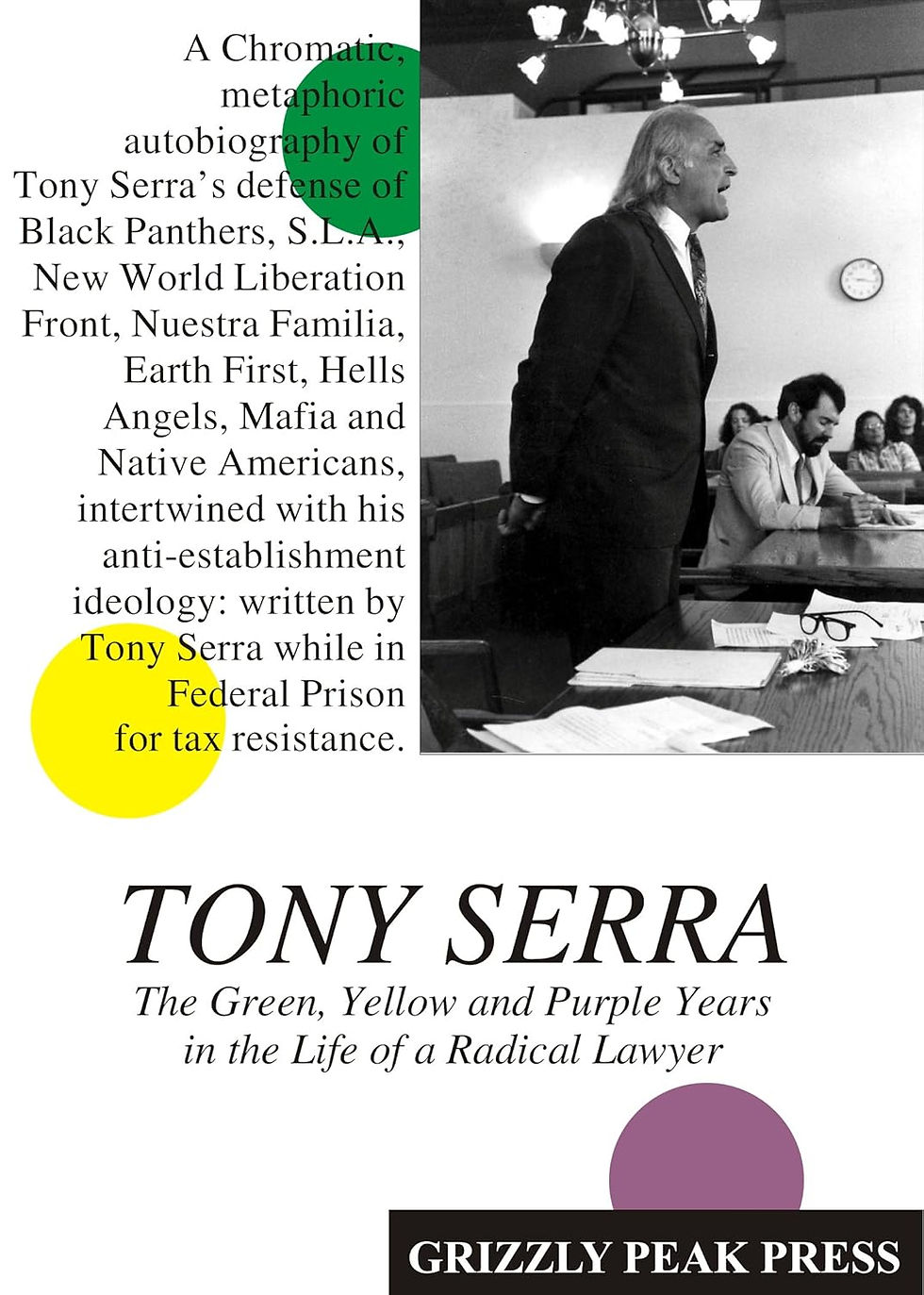Tony Serra As Radical Lawyer
- Clayton T. Robertson

- Jul 23, 2025
- 3 min read
Updated: Aug 10, 2025
By Clayton T. Robertson (Criminal Defense/Civil Rights Attorney)
It must appear odd for a criminal defense lawyer to write about another lawyer, but when people ask me what I sometimes do in my free time, I tell them that I read biographies or autobiographies of or by other attorneys. Recent examples include Earl Rogers (a famous early 20th century criminal defense attorney from Los Angeles), Clarence Darrow (another famous criminal defense attorney in the same time period who, unlike Rogers, has entered into the popular lexicon), Gerry Spence (possibly the most famous trial attorney alive today), and others.
One recent autobiography is by Tony Serra, who in his golden years continues to inspire his colleagues with his radical, pugnacious, and iconoclastic brilliance. He was a trial attorney's attorney. He fearlessly tried cases, moving from one trial to the next with a zeal and fanaticism that is virtually unimaginable by today's standards. He also innovated many trial techniques, including the controversial cultural defense. (This defense, more generally, will be the subject of a separate blog.)
This post is inspired by his book titled "Tony Serra: The Green, Yellow and Purple Years in the Life of a Radical Lawyer". Of its many passages, one that caught my attention reflects his tone and attitude. By fighting for "causes," he pulled no punches. Like Clarence Darrow, he would often connect his clients to larger political, social, or cultural controversies or problems, whether it was racism, class struggle, poverty, unemployment, or structural violence, as the backdrop to the case. He also attacked the use of informants as corrupting the truth-seeking process and sabotaging the judicial system. Moreover, for him, in very visceral ways, the "war on drugs" constituted a war on the Fourth Amendment, particularly at a time when marijuana legalization remained hotly contested even at the state level.
But what inspired me to write this post is a particular reference by him to many of his colleagues. He wrote in his characteristically colorful way: "The defense bar was aligned with the red forces, mainly because I was from the outside green world and I vigorously resisted the opposing force. Like many areas across the country, the defense bar was on the norm, passive and acquiescent to the prosecution: a class of dilettante legal professionals, praying to and prey of Mammon."
What I find interesting is that Tony is essentially saying that many of his defense colleagues lack the passion for a true fight and, as so often occurs within any system, there is a certain inertia or lethargy that takes over. The system beats down the advocate, or worse the advocate willingly complies, and they become jaded and cynical. In many ways, the advocate is "taught" by the system to act and react in a certain fashion to social norms that value "getting along" or not pushing "too hard" over pugnaciously fighting for your client's rights and freedoms. The attorney's personal convenience or monetary pressures also starts to take priority over the client's interests.
Tony's approach is guided by the types of "righteous cause" cases he typically would take on (often pro bono). However, even for the "run-of-the-mill" cases that grind through our courthouses every day of every week, the attorney's attitude should be the same. In many ways, the system is broken, with pervasive flaws that rightfully frustrate so many clients. But it is the advocate's responsibility to find ways to push forward. No case is so minor that a lawyer should not find creative ways to fight back, including through references to how a client's social and cultural history, or past obstacles or trauma, have led to that moment resulting in the alleged incident.
As such, there is no such thing as a "mitigation vs. vindication" distinction -- it is all part of one coherent whole that any practitioner must use to push forward even in the face of a programmed and systemic opposition.




